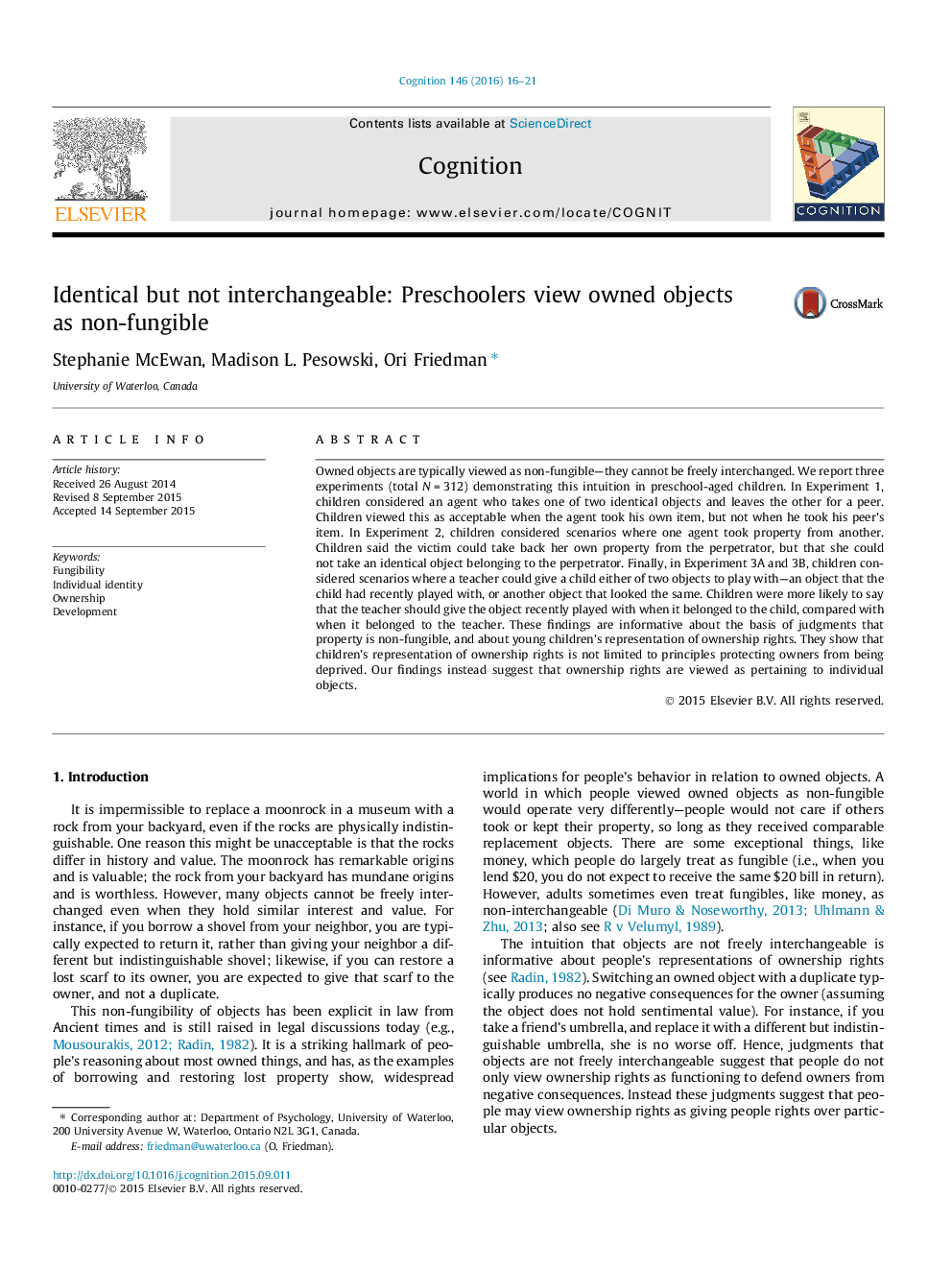| Article ID | Journal | Published Year | Pages | File Type |
|---|---|---|---|---|
| 7286363 | Cognition | 2016 | 6 Pages |
Abstract
Owned objects are typically viewed as non-fungible-they cannot be freely interchanged. We report three experiments (total NÂ =Â 312) demonstrating this intuition in preschool-aged children. In Experiment 1, children considered an agent who takes one of two identical objects and leaves the other for a peer. Children viewed this as acceptable when the agent took his own item, but not when he took his peer's item. In Experiment 2, children considered scenarios where one agent took property from another. Children said the victim could take back her own property from the perpetrator, but that she could not take an identical object belonging to the perpetrator. Finally, in Experiment 3A and 3B, children considered scenarios where a teacher could give a child either of two objects to play with-an object that the child had recently played with, or another object that looked the same. Children were more likely to say that the teacher should give the object recently played with when it belonged to the child, compared with when it belonged to the teacher. These findings are informative about the basis of judgments that property is non-fungible, and about young children's representation of ownership rights. They show that children's representation of ownership rights is not limited to principles protecting owners from being deprived. Our findings instead suggest that ownership rights are viewed as pertaining to individual objects.
Related Topics
Life Sciences
Neuroscience
Cognitive Neuroscience
Authors
Stephanie McEwan, Madison L. Pesowski, Ori Friedman,
